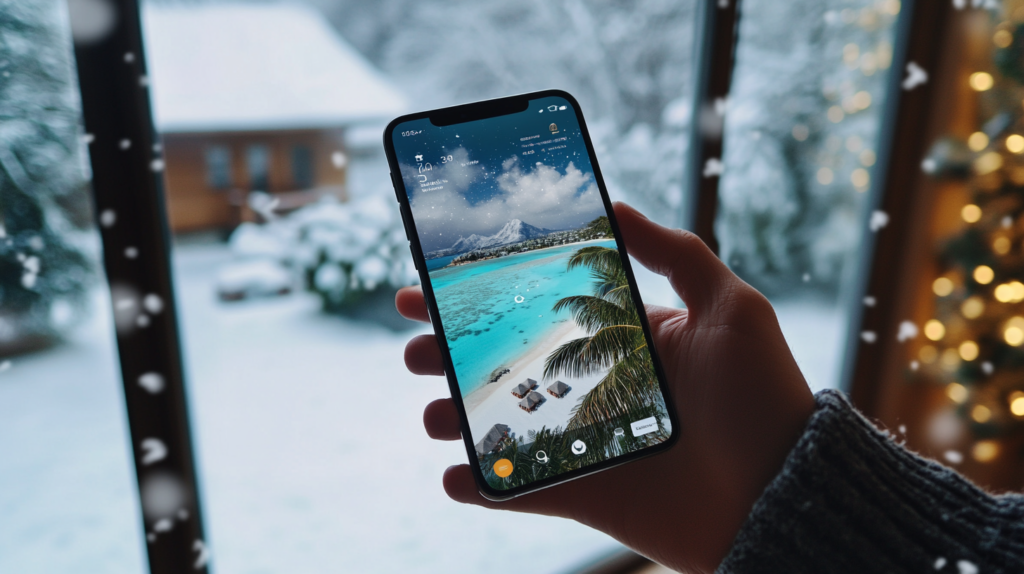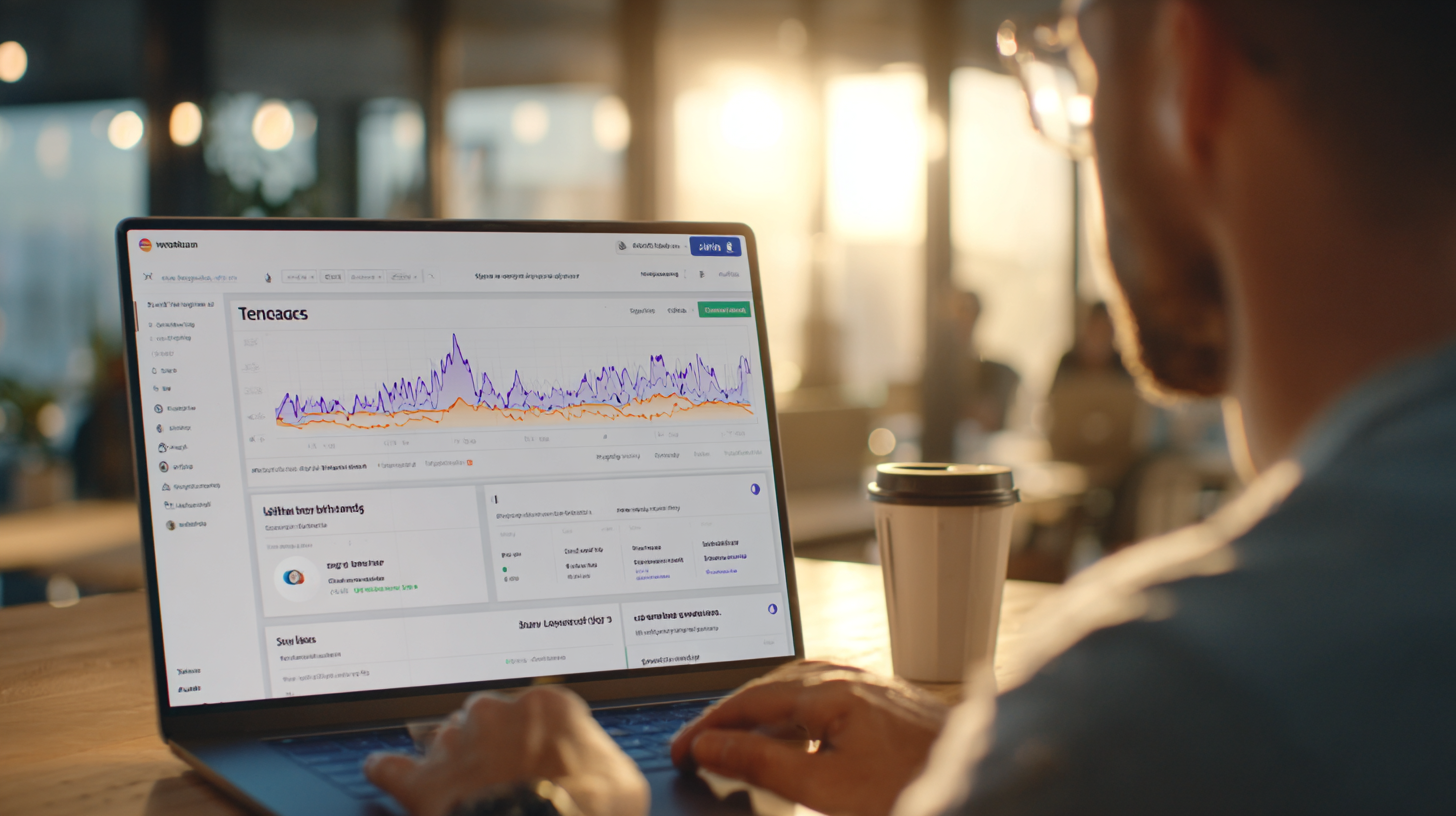
As winter’s chill settles in, many people dream of escaping to sun-soaked beaches and tropical paradises. Enter the world of predictive booking AI for travel, a cutting-edge technology that’s revolutionizing how we plan and book our winter getaways. This innovative algorithm predicts users’ interest in tropical destinations during winter and offers personalized booking options for warm escapes.
Understanding Predictive Booking AI for Travel
At its core, Predictive booking AI leverages advanced algorithms to anticipate and simplify winter travel bookings, identifying potential getaways before travelers even start searching. Rather than waiting for travelers to search, AI anticipates winter vacation preferences, analyzing seasonal trends and user behavior to suggest warm getaways before the need arises.
User Behavior Analysis for Predictive Bookings
The AI tracks and analyzes your browsing habits to predict booking intentions. By recognizing search trends—like increased interest in beaches, resorts, or tropical activities—AI pinpoints the ideal time to present travel recommendations.
Seasonal Pattern Recognition in Predictive Booking
AI recognizes seasonal travel shifts, tracking increased interest in tropical destinations as winter nears. Searches for ‘beach vacations’ and ‘tropical getaways’ surge in winter months—AI detects these trends, proactively suggesting tailored travel deals before demand peaks.
Data Collection Methods for Booking Predictions
To make accurate predictions, the AI collects various types of data:
- Search history and browsing patterns
- Past booking behavior
- Demographic information
- Current location and local weather conditions
- Social media activity related to travel
The Science Behind Predictive Search and Booking AI
The magic behind predictive booking AI lies in its advanced technical capabilities, combining various technologies to create a powerful predictive tool.
Natural Language Processing in Predictive Travel Bookings
Natural Language Processing (NLP) allows the AI to interpret your search queries, understanding the context and intent behind phrases like “warm beach vacation” or “tropical Christmas getaway.” It can discern nuances in language that indicate a user’s likelihood to book a tropical escape.
Machine Learning Algorithms in Booking Prediction
Machine learning algorithms form the backbone of this technology, enabling the AI to learn from each interaction and improve its predictions over time. These algorithms analyze vast amounts of data to identify patterns and make increasingly accurate booking predictions.
Identifying Potential Winter Travelers for Tropical Bookings
The AI is adept at targeting users who are likely to book warm escapes during cold months, using a combination of timing-based triggers and location data.
Timing-Based Triggers for Predictive Bookings
The system recognizes the optimal moment to suggest a tropical escape. It takes into account factors such as:
- The approaching winter season
- Drops in local temperature
- Increased searches for winter clothing
- Proximity to holidays or typical vacation periods
Geolocation and Weather Data in Booking Predictions
Geolocation and weather data play a significant role in this process. The AI knows if you’re in a region experiencing a particularly harsh winter, making you more likely to be receptive to the idea of a sunny getaway. It may also factor in long-term weather forecasts for your area.
Crafting Predictive Booking Options for Tropical Getaways
Once the AI has identified you as a potential winter traveler, it gets to work creating tailored booking suggestions.
Personalized Destination and Booking Recommendations
These aren’t generic tropical destinations; they’re personalized recommendations based on your past travel history, budget preferences, and even the activities you enjoy. The AI might suggest a secluded beach resort for someone who values privacy, or a lively coastal town for a traveler who enjoys nightlife.
Predictive Pricing and Availability
The AI goes beyond just suggesting destinations. It predicts optimal pricing and availability, presenting you with deals that align with your preferences and budget, often before these deals are widely advertised. This might include predicting when prices are likely to drop or when popular resorts are about to fill up.
Delivering Personalized Predictive Booking Content
The AI ensures its suggestions reach you through the most effective channels and at the right times.
Multi-Channel Predictive Booking Delivery
In today’s multi-channel world, the AI presents its booking suggestions across various platforms:
- Email campaigns
- Mobile app notifications
- Personalized website content
- Social media ads
- SMS messages
Timing and Frequency Optimization for Booking Offers
The AI determines the best times to present predictive booking options. It might notice that you tend to browse travel sites in the evening and time its suggestions accordingly. The frequency of these suggestions is carefully optimized to avoid overwhelming you with offers.
Measuring the Effectiveness of AI-Driven Predictive Bookings
The success of predictive booking AI isn’t just about making suggestions; it’s about driving actual bookings.
Predictive Booking Conversion Rates
Key performance indicators for measuring the accuracy of booking predictions include:
- Click-through rates on suggested bookings
- Conversion rates from suggestions to actual bookings
- User engagement with predictive content
- Increase in overall booking volumes for tropical destinations
Predictive vs. Actual Booking Tracking
The AI continually compares its predictions to actual user bookings. This allows it to refine its algorithms and improve accuracy over time. It might notice, for example, that users from a certain region are more likely to book tropical vacations earlier in the winter season.
Enhancing User Experience with AI-Powered Predictive Bookings
Predictive booking AI significantly improves the overall user experience in several ways.
Streamlining the Booking Process
By offering personalized, timely booking suggestions, predictive AI simplifies the travel planning process. It saves you time by presenting options that align with your preferences, reducing the need for extensive searching.
Discovering New Booking Opportunities
The AI often introduces users to destinations or deals they might not have discovered on their own. This could include up-and-coming tropical destinations or off-the-beaten-path resorts that match the user’s preferences.
Balancing Personalization and Privacy in Predictive Bookings
As predictive booking AI collects and analyzes user data, maintaining privacy and security is paramount.
Data Protection in Predictive Booking Systems
Robust data protection measures are implemented to ensure that your personal information remains safe:
- Encryption of sensitive data
- Anonymization of user information where possible
- Strict access controls for AI systems
- Regular security audits and updates
Integrating Predictive Booking AI into Existing Systems
For travel businesses looking to implement predictive booking AI, integration with existing systems is key.
Compatibility with Current Booking Platforms
The AI is designed to work seamlessly with current booking platforms, enhancing rather than replacing them. This might involve creating APIs that allow the AI to communicate with existing reservation systems and customer databases.
Staff Training for AI-Assisted Predictive Bookings
Preparing booking agents to work alongside the AI is essential. Training programs typically cover:
- Understanding AI-generated recommendations
- Interpreting predictive data
- Combining AI insights with human expertise to provide superior customer service
Future Developments in AI-Driven Predictive Travel Bookings
As technology continues to advance, we can expect to see exciting developments in predictive booking AI.
Advanced Predictive Booking Capabilities
Future AI might incorporate more sophisticated data analysis, including:
- Real-time sentiment analysis of social media posts
- Integration with smart home devices to gauge users’ moods and stress levels
- Predictive analysis of global events that might influence travel patterns
Virtual Reality Integration in Predictive Bookings
There’s exciting potential for integration with virtual reality technology. Users might be able to “experience” their tropical destination before booking, with the AI using their reactions to further refine its recommendations.
Overcoming Challenges in AI-Driven Predictive Bookings
Like any technology, predictive booking AI faces ongoing challenges that developers continue to address.
Adapting to Rapidly Changing Travel Trends in Predictions
The AI must stay current with evolving travel preferences and global trends. This involves continuous learning and adaptation of the algorithms to reflect changing user behaviors and emerging destinations.
Handling Unexpected Events in Booking Predictions
The AI needs to be flexible enough to adapt its booking predictions during unforeseen circumstances, such as global health crises, natural disasters, or significant geopolitical events that may impact travel patterns.
Conclusion: Embracing Predictive AI for Winter Tropical Travel Bookings
Predictive booking AI is transforming how travelers plan winter escapes, using machine learning to anticipate demand, recommend destinations, and secure the best prices before demand spikes.
By analyzing seasonal trends, user search behavior, and location-based triggers, AI offers tailored tropical getaway suggestions—helping travelers book dream vacations effortlessly.
As this technology advances, we can expect even smarter AI-driven travel planning, integrating sentiment analysis, real-time weather tracking, and event-based forecasting to create truly personalized booking experiences.
Glossary of Predictive AI Travel Booking Terms
– Predictive Booking AI: An artificial intelligence system designed to anticipate and suggest travel bookings based on user behavior and preferences.
– Natural Language Processing (NLP): A branch of AI that enables computers to understand, interpret, and generate human language.
– Machine Learning Algorithm: A type of AI that improves its performance on a specific task through experience.
– Conversion Rate: The percentage of predictive booking suggestions that result in actual bookings.
– Personalization: The process of tailoring travel suggestions to individual user preferences and behavior.
– Geolocation Data: Information about the geographical location of a user, often used to contextualize booking suggestions.
– Multi-Channel Delivery: The practice of presenting booking suggestions across various platforms and communication channels.
– Predictive Pricing: The use of AI to forecast and suggest optimal pricing for travel bookings.
– Virtual Reality (VR) Integration: The potential future use of VR technology to enhance the predictive booking experience.




